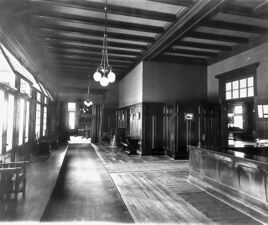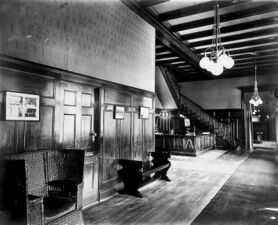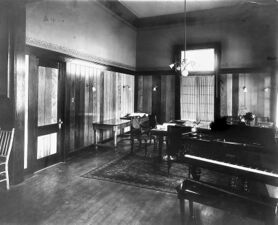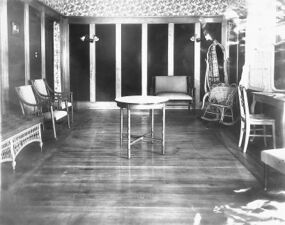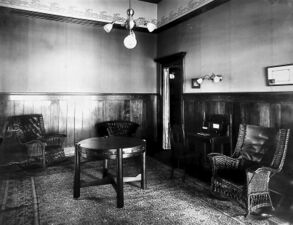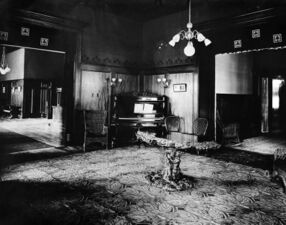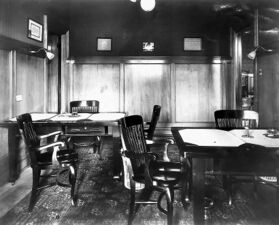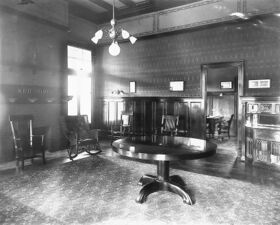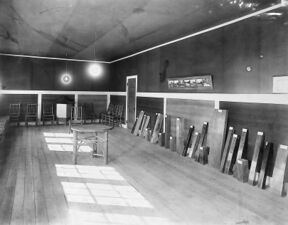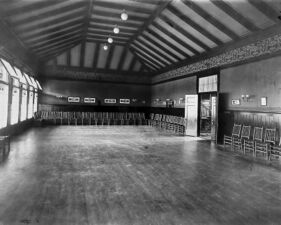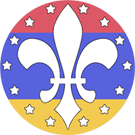House of Hoo-Hoo: Difference between revisions
No edit summary |
No edit summary |
||
| Line 39: | Line 39: | ||
==After the Fair== | ==After the Fair== | ||
After the fair, the building was | After the fair, the building was sold and shipped to Havana, Cuba for use as a casino. <ref>''The Morland Standard''. Jan 05, 1905, p. 11.</ref> | ||
==Gallery== | ==Gallery== | ||
| Line 60: | Line 60: | ||
==References== | ==References== | ||
<references/> | |||
==External links== | ==External links== | ||
[[Category:Washington University]] | [[Category:Washington University]] | ||
Latest revision as of 06:49, 27 November 2022
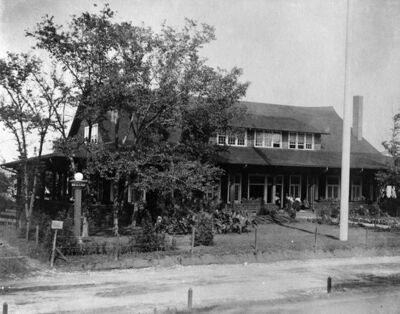 | |
| Location | Art Hill |
|---|---|
| No. of Buildings | 1 |
| Construction | |
| Construction Cost | $57,500 ($1.73 million in 2021) |
| Architecture | |
| Dimensions | 86' x 130' |
The House of Hoo-Hoo was a clubhouse from the Concatenated Order of Lumberjacks, located on Art Hill southwest of the Texas and Kentucky Buildings.
History[edit | edit source]
The Concatenated Order of Hoo-Hoo was an organization of lumberman, created in 1892. The name Hoo-Hoo originates from the lumberjack's shout. At the time of The Fair, the lumbermen of the country wanted a significant symbol of their industry.
Description[edit | edit source]
The weather boarding was of yellow pine, circular sawed with rough side out. This was stained a Flemish green. The house was covered with Redwood shingles.
Each room of the House of Hoo-Hoo was finished in a different type of wood, utilized 139 different kinds of veneer, including red gum, yellow pine, poplar, redwood, and cypress. The furnishing in each room matched the wooden trim.
This organization raised $100,000 ($3.02 million in 2021)for participation and continued representation during the entire exposition period. The membership was limited to 9,999 and the initiation fee was $9.99.
Fire[edit | edit source]
It burned down in a fire on June, 24, 1904 but was rebuilt in less than 30 days.
After the Fair[edit | edit source]
After the fair, the building was sold and shipped to Havana, Cuba for use as a casino. [1]
Gallery[edit | edit source]
-
Rotunda
-
Reception Hall
-
Press Room
-
Ladies Rest Room
-
Ladies Reception
-
Ladies Reception
-
Gentleman's Waiting Room
-
Gentleman's Waiting Room
-
Assembly Hall
-
Assembly Hall
See also[edit | edit source]
Notes[edit | edit source]
References[edit | edit source]
- ↑ The Morland Standard. Jan 05, 1905, p. 11.
